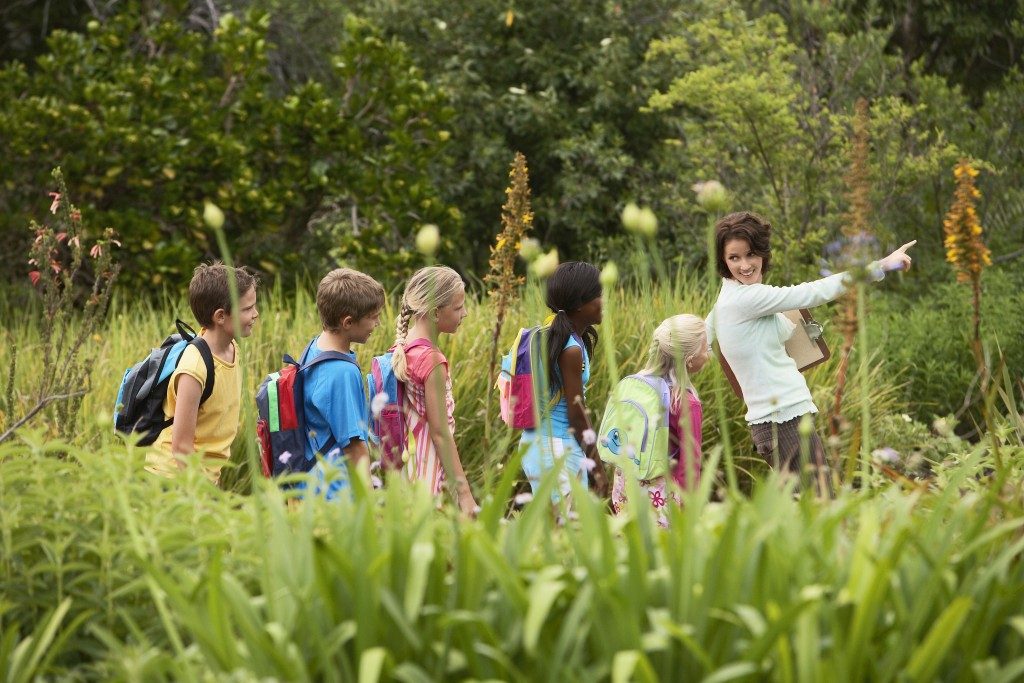Field trips and associated learning activities out in nature can impart a love for the natural world and a longstanding appreciation of the natural sciences (and careers in science and technology) among young learners.
Science isn’t just learned from reading textbooks. It is an immersive discipline that not only involves reading literature and examining laboratory tests but also making observations and gathering information in the field. One of the ways to introduce students to the discipline of science in full is to move out of the classroom and introduce them to working out in nature.
Fieldwork is integral to the scientific process, especially in the fields of the natural sciences. Observations and data gleaned from the field provide the needed input to discover things in the lab. Then as now, scientists frequently work outdoors in the wilderness, making new discoveries based on what they find in the open. Introducing students to this aspect of scientific discipline fosters an appreciation for the discipline as a whole.
Beyond the Classroom
Wilderness areas across the country within close proximity to cities serve as the perfect starting point to introduce young learners to the fascinating world of the natural sciences. In the outskirts of Wichita, KS, for instance, the grounds near a lodge make a perfect introduction to the surrounding terrain.
Most educators today recognize the importance of moving past the four walls of the classroom and engaging children’s learning through other outlets. Granted, it will take some time for very young learners to start truly immersing themselves in activities around nature. The initial introductions may test their attention spans, so teachers should devise ways to get them engaged. One way to motivate younger students is through scavenger hunts and other outdoor activities. Children crave stimulation; field projects such as this represent a break from the monotonous environment of a classroom and offer many ways to combine learning and leisure.
Science Firsthand
Having a field trip to a beautiful natural vista can be an eye-opening experience for young learners and can help them develop a budding appreciation for science. By associating science with a fun and fascinating look at the natural world, they create a lasting and fond first impression that will stay with them for a lifetime.
By introducing young learners to science in the field, they gain a foretaste of one of the many activities done when pursuing a career in science. This encourages young people to consider careers in the fields of science, technology, engineering, and mathematics. Students get to do activities done by real biologists in the field and see firsthand how the theories and principles they see in books play out. They get to understand the real-world relevance of what they learn and have a greater appreciation of science as a result.
Loving the Great Outdoors

Immersing students in nature also cultivates an appreciation for the wilderness. By showing them nature in action, they develop an appreciation for the beauty and splendor of nature and satisfy their curiosity and fascination with the phenomena around them.
Once cultivated, this love of nature will serve them well throughout their lifetimes. Young persons who make a habit of going on hikes not only stay fit and active but also gain immeasurable psychological benefits from being exposed to the great outdoors.
